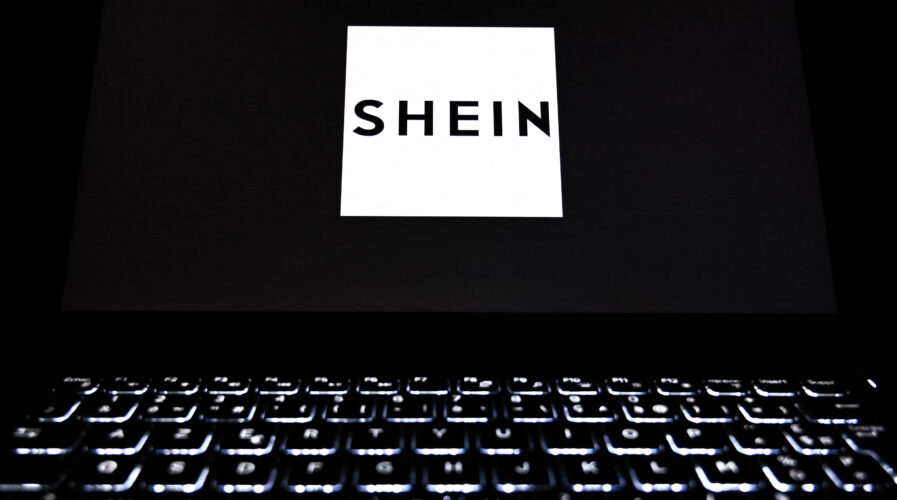
SHEIN IPO: Will the Chinese fashion retailer finally get listed on NYSE this year? (Photo by Philippe LOPEZ / AFP)
Shein IPO: Will the Chinese fashion retailer finally get listed on NYSE this year?
- Shein, the fast fashion retailer is reviving plans to list in New York this year.
- The founder of Shein is even considering a citizenship change in Singapore to overcome the foreign IPO obstacle set by the Chinese regulators.
- If the IPO really happens, it is the first big Chinese firm to list in the US since last June, when the crackdown intensified.
In June last year, Chinese fast fashion retailer Shein was rumored to be preparing for a possible IPO at the New York Stock Exchange (NYSE). The company however denied the rumors. Less than a year later, similar hearsays resurfaced and this time, with China’s tight foreign listing requirements, the founder of Shein is even considering a citizenship change for the sake of the capital raising activity.
In a recent exclusive report, quoting two people familiar with the matter, Reuters stated that “the Chinese fashion retailer is reviving plans to list in New York this year and its founder is considering a citizenship change to bypass proposed tougher rules for offshore IPOs in China.”
Although it is not known how much the company may be looking to raise from its New York debut, previous claims stated that the capital raising could be valued at US$47 billion. Truth be told, if materialized, the IPO could well be the first major equity deal by a Chinese company in the US since Chinese regulators stepped in to tighten oversight of such listings last July.
Founded by Chinese entrepreneur Chris Xu in 2008, the fast fashion retailer apparently first started preparing for a US IPO about two years ago. The plans were shelved as tension were rising between the US and China, the sources told Reuters. When asked for an official comment, a Shein spokesperson said the company had no plans to go public.
To top it off, the sources even told Reuters that founder Xu was even considering a Singapore citizenship to bypass China’s new and tougher rules on overseas listings. “The change in citizenship, if applied for and successful, would ease the path to an offshore IPO,” they said.
An IPO to match the massive growth of SHEIN
For starters, Shein’s ongoing rise in popularity saw the fast fashion e-commerce app taking the crown from Amazon last month for the most downloaded shopping app on iOS and Android in the world for 2021. According to Coresight Research, it pulled in an estimated US$10 billion in revenue in 2020.
Shein, like many other e-commerce sites, has enjoyed a sales boom during the Covid-19 pandemic. It racked up US$15 billion in revenue in 2021 based on estimates and according to its website, it ships clothing to 150 countries from global warehouses, with the US as its top market, followed by other western countries and the Middle East.
With its soaring sales, Shein’s valuation too has been increasing dramatically each year. In January 2019, Shein raised US$500 million from Sequoia China and Tiger Global at a US$5 billion company valuation. In August 2020, commentators estimated its valuation during a fresh funding round at nearly US$15 billion. Now, the company could be worth as much as US$50 billion.
Based on China-based market research and consulting firm Daxue Consulting, Gen Z females and parents of children under 15 are the fast fashion retailer’s main customers. What also makes Shein to have a successful supply chain is how its headquarters are surrounded by its suppliers and manufacturers.
For context, according to a report by Forbes, it has four R&D facilities in Nanjing, Shenzhen, Guangzhou, and Hangzhou, plus six logistics centers in Foshan, Nansha, Belgium, India, and on the East and West Coasts of the US. It also has seven customer service centers, based out of Los Angeles, Liege, Manila, Yiwu, and Nanjing, and employs more than 10,000 people.
China’s hawkish stance on offshore IPOs
Since 2020, China has been doing anything but slowing down its crackdown on Big Tech. On top of the back and forth over regulatory loopholes, the country’s internet watchdog also drafted rules to regulate how domestic firms can list overseas.
The move by the Cyberspace Administration of China (CAC) last year is seen as a step to govern companies in China applying for overseas IPOs “without complete restriction.” The draft rule is basically an upgraded regulatory framework based on the overseas listing rule drawn up in 1994.
The changes were triggered mainly by the New York IPO by ride-hailing giant Didi Global Inc., which went ahead to list, in defiance of Beijing’s orders to halt. Following that, authorities have moved to halt the flood of firms seeking to go public in the US over the last six months.
The China Securities Regulatory Commission (CSRC), however, emphasized that the draft rules aren’t meant to tighten policies for overseas listings. According to Beijing, these rules are to ensure companies comply with domestic laws governing foreign investment, cybersecurity, and data security.
READ MORE
- The criticality of endpoint management in cybersecurity and operations
- Ethical AI: The renewed importance of safeguarding data and customer privacy in Generative AI applications
- How Japan balances AI-driven opportunities with cybersecurity needs
- Deploying SASE: Benchmarking your approach
- Insurance everywhere all at once: the digital transformation of the APAC insurance industry


